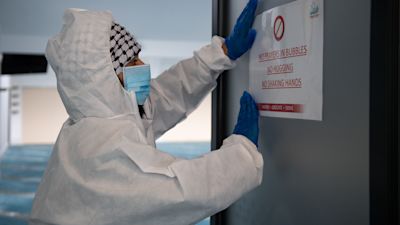Covid: When will public inquiry into UK government's handling of pandemic happen? What powers will it have?

There will be an independent, public inquiry into the UK government's handling of the Covid-19 pandemic, Boris Johnson has announced.
The prime minister told MPs at the Commons on Wednesday afternoon that the inquiry will place “the state’s actions under the microscope”.
Announcing the inquiry, Mr Johnson said: “Amid such tragedy the state has an obligation to examine its actions as rigorously and as candidly as possible, and to learn every lesson for the future – which is why I’ve always said when the time is right there should be a full and independent inquiry.
“So, I can confirm today that the Government will establish an independent public inquiry on a statutory basis, with full powers under the Inquiries Act 2005 – including the ability to compel the production of all relevant materials and take oral evidence in public under oath.”
It comes after a report from the Independent Panel for Pandemic Preparedness and Response, commissioned by the World Health Organisation (WHO), said a quicker international response could prevent the outbreak in China becoming a global catastrophe.
Here's what we know about the public inquiry so far:
When will the public inquiry begin?
Mr Johnson said the public inquiry, which will take months to prepare for and set up, will begin in spring 2022.
He told MPs: "I expect that the right moment for the inquiry to begin is at the end of this period in the spring of next year, spring 2022."
Asked by Labour Party leader Sir Keir Starmer to clarify whether the inquiry would open by spring 2022, or if the government would begin setting it up in spring 2022, Mr Johnson said the setting up of the Covid public inquiry will begin before spring 2022 so the inquiry is ready by then.
Downing Street has said it does not yet have a deadline for selecting a chair for the inquiry.
Why can it not start sooner?
The prime minister said he understood many bereaved families will be anxious to have the inquiry begin sooner but explained he did not want to "inadvertently divert or distract" key workers from their duties during the pandemic.
He said the time people will have to spend testifying in public "in some cases for days, will place a significant burden on our NHS, the government, on our scientific advisors and on many others".
Labour Party leader Sir Keir Starmer asked: "Why can it not be later this year? Why can it not start earlier?" Mr Johnson replied: "I must repeat my point to him that I do think the timing that we set out is the right timing.
"I think it would be wrong to devote, to consecrate, huge amounts of official time, public health workers' time, to an inquiry when they may very well be still in the middle of the pandemic."
How will the public inquiry work and what powers will it have?
A full inquiry is led by a judge and includes witnesses represented by lawyers.
Asked by an MP to clarify if the public inquiry will have powers to call all electronic communications between government ministers and "Tory chums", Boris Johnson replied the public inquiry will have "full powers to compel evidence".
What will the inquiry consider and who might it consult?
Prime Minister Boris Johnson told MPs the inquiry is “free to scrutinise every document to hear from all the key players and analyse and learn from the breadth of our response".
Quizzed by MPs, Mr Johnson confirmed the inquiry will consider the UK's handling of the coronavirus before the first lockdown in March 2020 and would not “exclude” the idea of looking at long-Covid.
The inquiry is likely to consult public officials, bereaved families and those working on the front line.
Asked by Liberal Democrat former minister Alistair Carmichael that bereaved families have the same quality representation in the inquiry as public officials, Mr Johnson replied: “Yes, and I believe that is not only vital for the inquiry, because I think the inquiry must learn from the direct experiences of the bereaved who have suffered so much – and I think they’ll provide invaluable evidence for the inquiry – but it’s also plainly a matter of justice and fairness, and I fully accept the point he makes.”
Downing Street has confirmed Boris Johnson will be willing to give evidence under oath to the public inquiry if asked.
The Prime Minister’s official spokesman said: “The Prime Minister will conform to what is required for the inquiry, yes.”
When will the inquiry report back its findings?
A full public inquiry - like Sir John Chilcott's into the decision to go to war in Iraq - would take many years and might not report until after the next election.
Dame Deirdre Hine, who led the independent review into the 2009 swine flu outbreak, said she does not expect the public inquiry to report back in less than two years due to the “ground it has to cover”.
Downing Street declined to say whether the public inquiry will report back before the next general election.
Listen to our coronavirus podcast:
The prime minister’s spokesman said: “The timescale is down to the chairman, that is something that we will want to agree with the chairperson when they are appointed.
“Some inquiries have had timescales and, as is sadly the case, sometimes inquiries don’t stick to those timescales, but we will make clear when we set out terms of reference whether there’s a timescale, and obviously we will want to discuss timing with the chairperson as and when we pick them.”